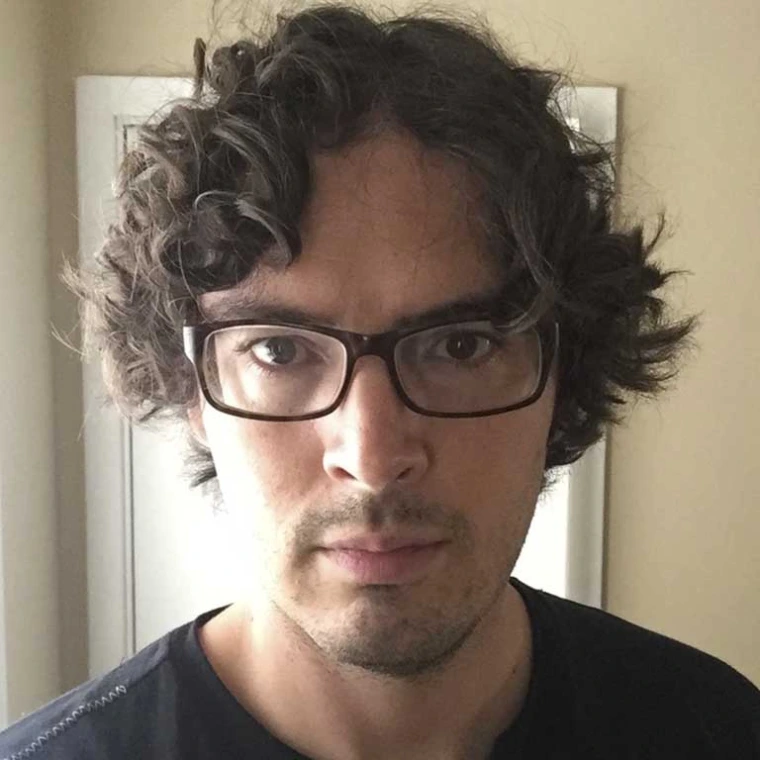R. Andrés Guzmán '07

"Interdisciplinary study is central to my scholarship. The M.A. program was an ideal place for me to study and hone my research interests because of the freedom it gave me to follow my curiosity wherever it took me. The core classes I took (...) were invaluable to my intellectual development and continue to form the foundation of the work that I do."
I am an associate professor in the Department of Spanish and Portuguese at Indiana University. My research is positioned at the intersections of Latinx and Latin American literary and cultural studies, border studies, political theory, political economy, psychoanalysis, and philosophy. The work I do is theoretically driven and seeks to critically engage with the conceptual bases that underpin scholarship in the fields in which I work.
In my first book, Universal Citizenship: Latina/o Studies at the Limits of Identity (University of Texas Press, 2019), I reconceptualize the notion of universal citizenship as a pivotal concept in theorizing egalitarian politics. I begin from the assertion that Latinx and ethnic studies continue to be dominated by identitarian and legalistic conceptions of citizenship, nation, and political subjectivity. I formulate alternatives to these conceptions by highlighting moments of unlicensed citizenship from the perspective, and with the participation, of those denied legal recognition of citizenship and situated at the margins of national belonging. Beyond conceptualizing citizenship as an outcome of recognition and admittance by the nation-state—in a negotiation for the right to have rights—I assert that, insofar as universal citizenship entails a forceful entrance into the political from the latter’s foundational exclusions, it emerges at the limits of legality and illegality via a process that exceeds identitarian capture.
Drawing on Lacanian psychoanalysis and philosopher Alain Badiou’s notion of “generic politics,” I advance my argument through close analyses of various historical, literary, cultural, and legal texts that foreground contention over the limits of political belonging. These include the French Revolution, responses to Arizona’s H.B. 2281, the 2006 immigrant rights protests in the United States, the writings of Oscar “Zeta” Acosta, Frantz Fanon’s account of Algeria’s anticolonial struggle, and more. In each case, I trace the advent of the “citizen” as a collective subject made up of anyone who seeks to radically transform the organizational coordinates of the place in which they live.
In my current book project, titled The Communal Unconscious, I investigate the material bases that subtend and structure political imaginaries. Focusing on a series of case studies ranging from the Underground Railroad and maroon communities to the new sanctuary movement and the migrant caravans, I analyze the emergence and reemergence, across different places and times, of communal imaginaries as “fugitive” subjects reappropriate the material infrastructures of capitalist circulation for their own efforts at liberation and give consistency to liberatory practices through the production of rebellious territoriality.
"Interdisciplinary study is central to my scholarship. The M.A. program in Latin American Studies at the University of Arizona was an ideal place for me to study and hone my research interests because of the freedom it gave me to follow my curiosity wherever it took me. The core classes I took in Latin American Studies, along with classes in History, Political Science, Gender and Women’s Studies, and Spanish and Portuguese, were invaluable to my intellectual development and continue to form the foundation of the work that I do."

